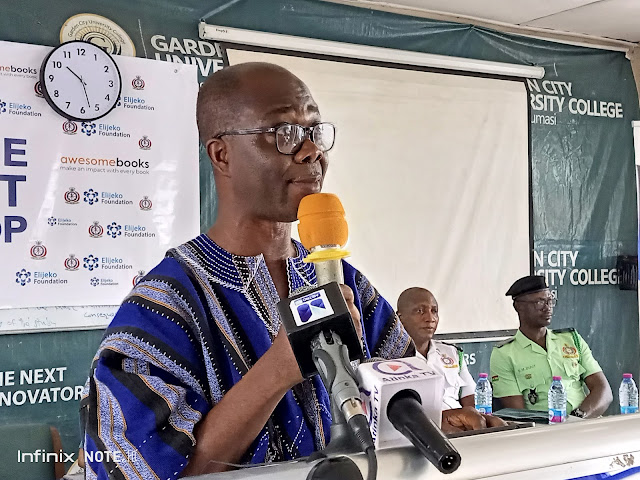NATIONAL AMBULANCE SERVICE RECEIVES 3.7 MILLION PRANK CALLS IN 2022, 110, 000 GENUINE EMERGENCY CALLS IN 3YRS
 |
| Dr. Foster Ansong-Director of Operations, National Ambulance Service |
Ironically, the
Service received a total of 110 thousand genuine emergency calls in a
three-year period spanning 2020-2022.
According to the Director
of Operations of the National Ambulance Service, Dr. Foster Ansong, the prank
calls impede people in emergency situations from easily accessing the service
thereby thwarting real time response to emergency situations to save lives.
Dr. Ansong disclosed
this to a section of the media at Kenyase in the Kwabre East Municipality in
the Ashanti region during an interview.
He had led a team from
the National Ambulance Service to train participants of a training programme in
Basic Life Support.
“When we talk about prank calls,
that one, it’s serious. If we’re to put together the data, from that same 2020
to 2022, prank calls alone are in millions. Even in one particular year, we
observed about 20 million prank calls in one year, if you go to the National
Security and they pull out the data. Just last year, I was going through the
data and about seven million rank calls cuts across all the emergency services.
National Ambulance Service alone, we were having over 3.7 million prank calls”,
Dr. Ansong stressed.
To stop the practice, Dr. Ansong called for a mechanism by the various state institutions connected to security and communication to detect the real identities of the prank callers, especially as SIM Cards are now identified with specific individuals, block their communication permanently and later publish details of all such offenders in the media in which case, people intending to also abuse the Emergency telephone lines would be deterred.
 |
| The participants being taken through basic emergency life saving technics |
The resource persons
from the National Ambulance Service took the participants through theoretical
and practical basic life-saving skills to enable the participants improve on
their professional competences and care not only at their respective places of
work but anywhere emergency care is needed. They were as well educated in good
customer care as one of the most important but often disregarded psychological
and emotional health needs of healthcare seekers.
The training programme was jointly organized by Elijeko Foundation, a non for profit organization involved in health promotion in West Africa, the National Ambulance Service and National Blood Bank. Founder of Elijeko, Andrews Nyantakyi, explained that, insufficient number of people with skills in basic life-saving in emergency situations is contributing to the high number of preventable deaths and morbidity at home, workplace and in public spaces hence the need for more skilled people to prevent needless deaths.
An Emergency Medicine Specialist at the Komfo Anokye Teaching Hospital, Dr. Joseph Bonney, like the case of fire safety, the state needs to be urgently consider a policy on First Aid and public education starting from the basic school level.


Comments
Post a Comment